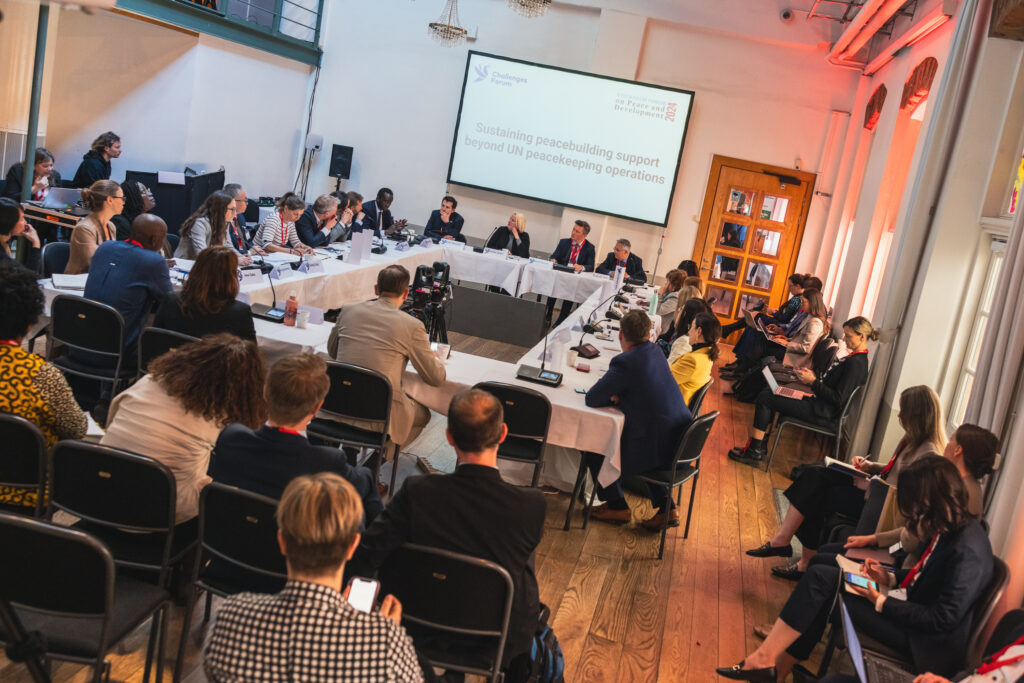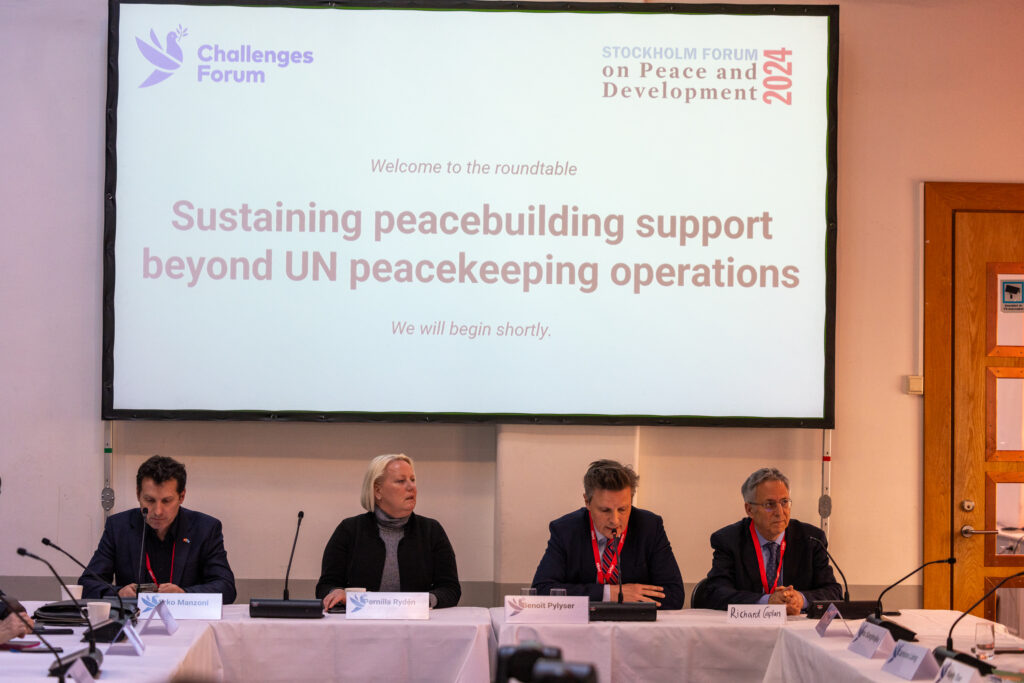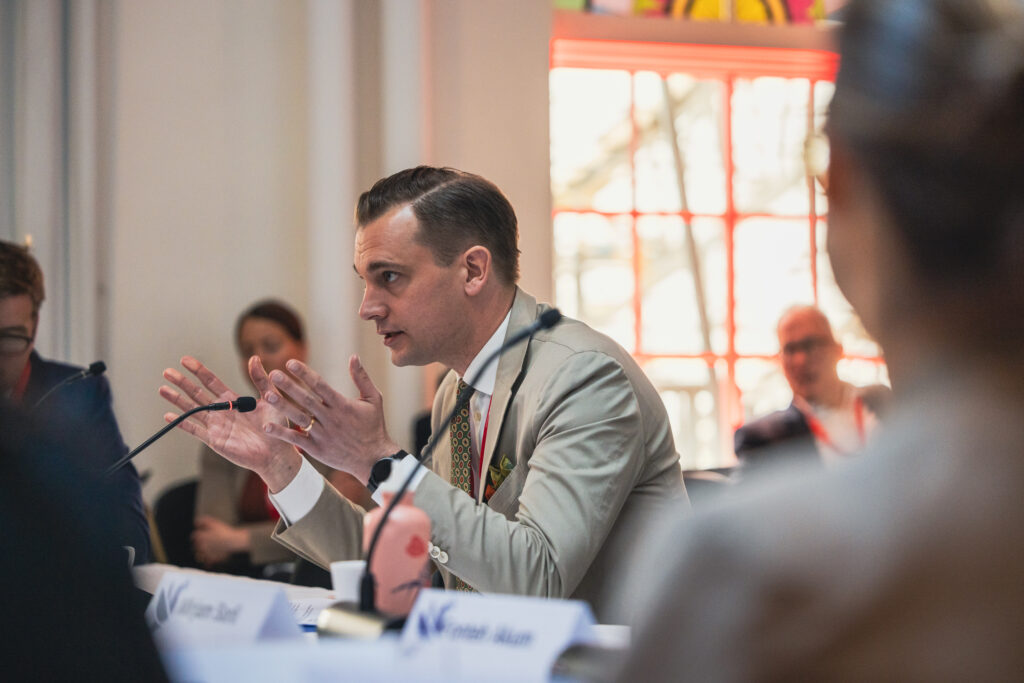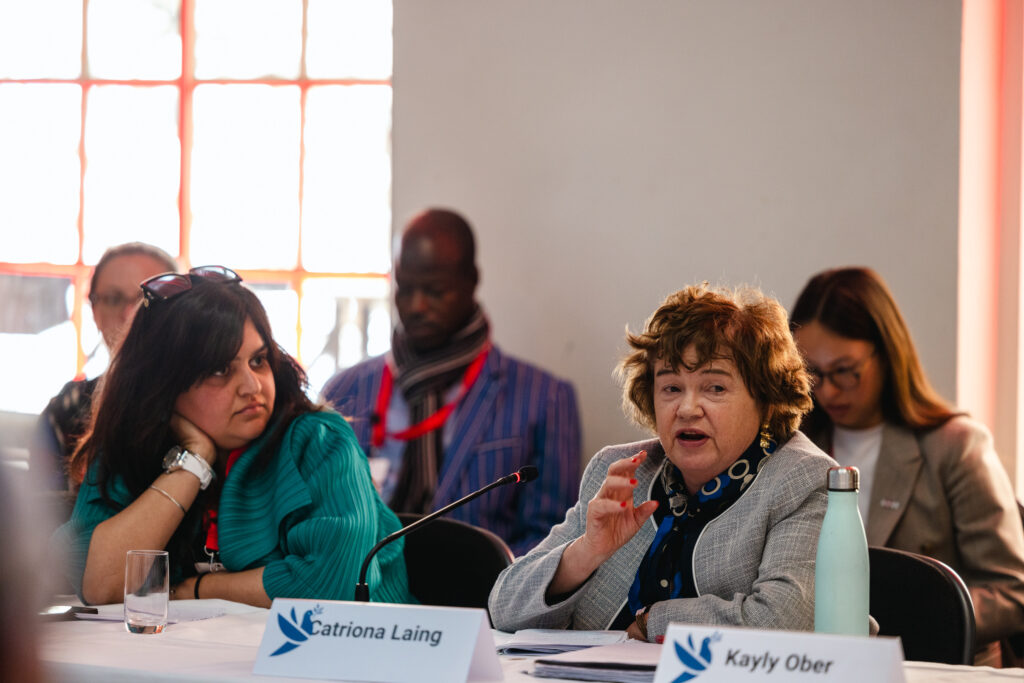Peacebuilding Beyond Peacekeeping – Challenges Forum at the Sthlm Forum
When the Stockholm Forum on Peace and Development convened around the theme ‘On the Edge: Navigating a changing world’, the Challenges Forum was there, organising one of the forum’s roundtable sessions.
Our solutions-driven discussion explored how the UN system can provide more flexible and tailored support to countries in transition when a mission leaves. And how to avoid losing the hard-won gains of a country’s development, supported by the presence of a peacekeeping operation. In addition to roundtable participants, speakers included Catriona Laing, SRSG for UNSOM, Guang Cong DSRSG/P for UNMISS, Per Olsson Fridh, Director General, Folke Bernadotte Academy and Professor Richard Caplan, University of Oxford.
Read the Key Takeaways from the event here.




Recent empirical evidence shows that the presence of UN peace operations can often improve the host country’s state-building gains in security, governance, and economic development. But the departure of the missions typically marks the end of that positive development.
With both recent and upcoming departures of peacekeeping operations in Africa, our session want to explore how the UN system can provide more flexible and tailored support to countries in transition, and avoid losing the hard-won gains of a country, supported by the efforts of a peacekeeping operation. And how to better support Resident Coordinators and UN Country Teams after transitions, as well as the possible role of the UN Peacebuilding Commission and the Peacebuilding Fund.
In addition to on-site participation, the Challenges Forum partners was offered an exclusive opportunity to virtually listen in to the discussion, broadcasted via zoom.

Want to learn more about transitions research?
In this recent research brief, Prof. Andrea Ruggeri and Dr. Maline Meiske argue that while many host state capacities may improve during UN PKO deployment, the positive state building outcomes can often not be obtained after the closure of the operation. This research is part of a joint initiative by the Folke Bernadotte Academy (FBA), the Challenges Forum International Secretariat (CFIS) and the Swedish Defence University (SEDU).

